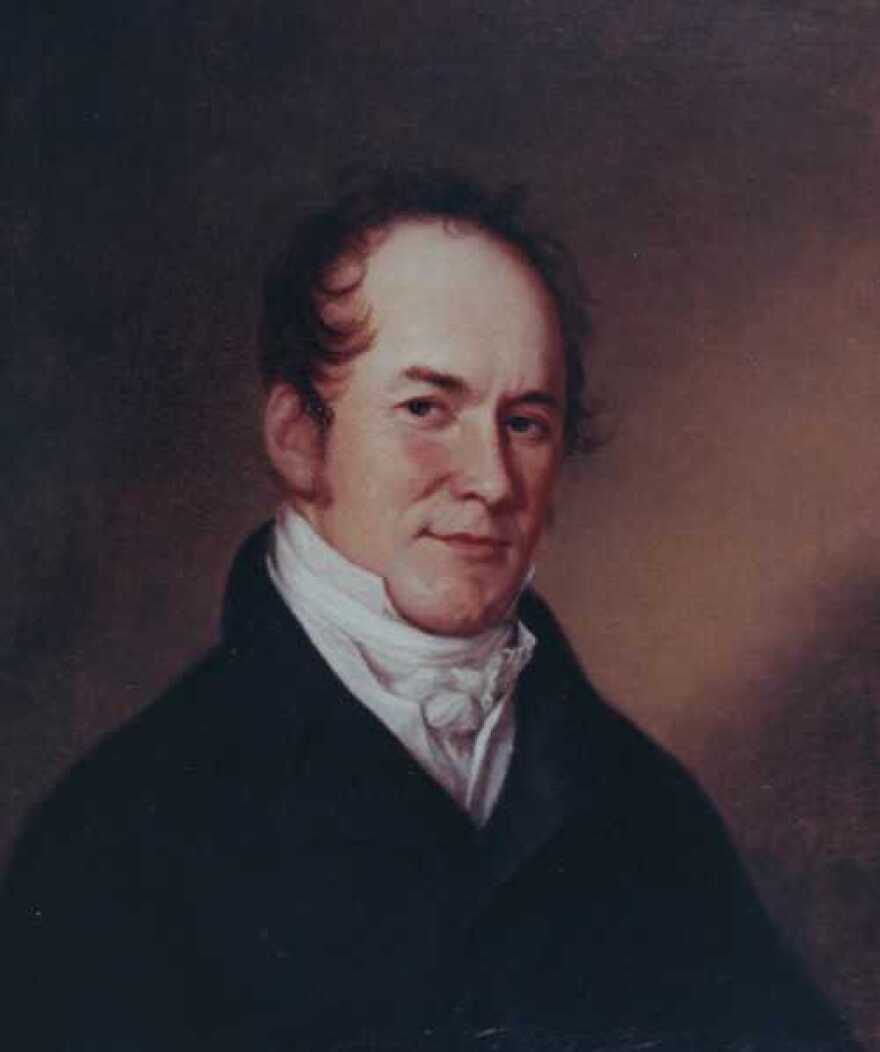Over the past couple of months we’ve been reviewing the events, and getting to know the people, who contributed to Maine achieving statehood 200 years ago next month.
Today, historian Herb Adams on two key individuals. First, Henry Clay, the Speaker of the U.S. House of Representatives at the time Maine pressed for admission to the Union:
“Henry Clay of Kentucky is probably the most important and powerful politician of that day who never becomes president,” Adams says. “He runs for president five times, more than anybody else except maybe Harold Stassen in the 20th century. Lost every time, and largely it is because of the issue of slavery. He believes slavery is a positive good for an inferior people. He will say, in a vague and roundabout way, but he says it, that slaves are better off in clothing and food and shelter than immigrant labor forced to work in the factories of the north.”
Despite that, Adams says Clay claimed to be anti-slavery, as were most Mainers. But Clay also owned slaves and his votes didn’t always match his words.
In 1819, the year before Maine applied for statehood, Clay cast a tiebreaking vote against the Tallmadge Amendment, which would have gradually ended slavery in Missouri territory. The only Maine congressman to join Clay was John Holmes.
Holmes was born in Kingston, Massachusetts. He went to school in Massachusetts and to college in Rhode Island. After becoming a lawyer, Holmes opened a practice in Alfred. He was elected to the U.S. House in 1816 and was one of Maine’s 7 votes in the chamber.
As Adams tells us, Holmes was a crucial vote opposing the Tallmadge Amendment in 1819:
“John Holmes is a deal maker, a backroom worker. A guy who, in some respects, prefers the shadows. Martin Van Buren, who was later president, who liked him, in his memoirs said he was a ‘reckless inebriate,’ and others who worked with him said that Holmes ‘shot up in the air like a rocket, and would fall down like a broken stick,’” Adams says. “So, here we are, seven congressmen, six or five usually vote the same way, the anti-slavery way. Even if it means Maine does not become a state. Holmes was one of those operating on the other side of the fence. And that meant on the other side of the fence he’s often operating with Henry Clay.”
Asked whether Holmes maybe engaged in the politics of the time, thinking that staying on the pro-slavery side is what’s going to get Maine what it wants, namely statehood, Adams agrees.
“You could say that Holmes read Machiavelli. I think he had literally read Machiavelli,” Adams says. “Holmes wrote a book that no one has ever read called ‘The Statesman.’ It was printed as a book. The manuscript is at Maine Historical and I went to see it, it was literally dusty. I don’t think anybody’s ever looked at it since he wrote it on large odd-shaped sheets of paper. But, it talks about that, about how to maneuver. In essence, how a cork stays above water. He’s very frank about it and he lived that frank way.”

So Holmes and Clay are already on the record, allowing slavery to continue, unchecked, in Missouri territory. It sets the stage for Clay’s pronouncement on Dec. 28, 1819, that Maine’s statehood bill won’t advance in the House unless a bill explicitly allowing slavery in Missouri territory does.
For most of Maine’s members of Congress, who oppose slavery, the linkage seems to doom Maine statehood. But not to John Holmes. He would continue to be willing to see slavery in Missouri and provide a key vote for the Missouri Compromise that gave Maine statehood 200 years ago next month.
For more about the road to Maine statehood, visiting mainepublic.org/200years.



